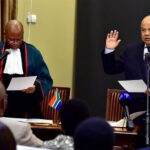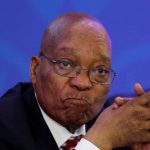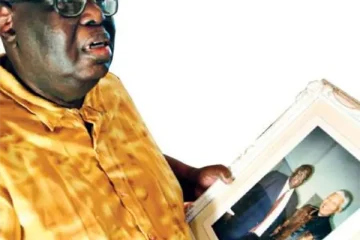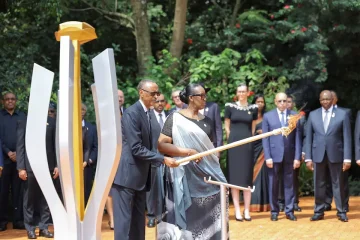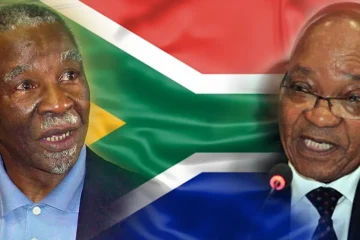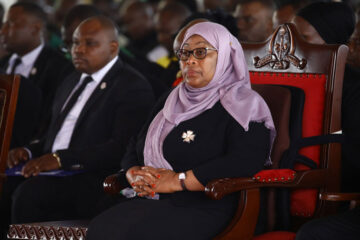THERE is a growing perception that the capacity of the South African state to govern the country effectively has been declining steadily and progressively in recent years. As the third component of the state, alongside the executive and the judiciary, the legislature cannot escape this assessment.

Despite this perception, it is also true that the South African state is not yet broken. It might be inching in that direction, but it is certainly not yet there.
Elections have been held regularly and on time, removing any doubt as to the legality of those sitting in parliament and making laws that govern the lives of the citizens of South Africa. However, the legitimacy and prestige of the legislature is diminished by the progressive decline in the number of citizens who take part in elections. Voting is a crucial element of constitutional democracy. No legislature could hold its head high as far as legitimacy is concerned if an increasing number of citizens are apathetic, disillusioned or negative towards the election of public representatives.
Having said that, there is no doubt that, at a formal level, the legislature has played its part since the advent of democracy in enacting laws and playing an oversight role over the executive. The laws passed by parliament have been in line with the constitution, and where declared to be in conflict with the constitution by the courts, the legislature has always corrected the laws in compliance with the rulings of the relevant courts. Parliament has never acted illegally or in defiance of the constitution.
It seems, through its own doing, the legislature is now the weakest arm of the three components of the state.
Firstly, the legislature has subjected itself to too much litigation, creating the impression that it is unable to run its affairs competently and fairly. Most of the litigation relates to procedural matters and/or rulings by presiding officers.
It is obvious that whilst the three components are autonomous, and are supposed to be equal, they cannot be completely independent of one another. But if one of the components appears to be weak or incapable of running its own affairs fairly, competently or efficiently, it opens itself up for too much interference by the others. It appears parliament has to find a way to run itself in a manner and spirit that protect its autonomy, independence and standing. Whilst litigation might be necessary in some cases, it is undesirable if it becomes a constant procession to the courts by members of parliament against their own institution.
Secondly, its oversight role over the executive is perceived to be timid, weak and ineffective. It seems parliament has no bite to bolster its oversight role.
Apart from receiving reports from government departments, State Owned Enterprises or entities, interrogating them and sometimes scolding the relevant ministers and their officials, it cannot do anything else. This weakness was brought into sharper relief in the context of state capture and the looting and malfeasance that went with it.
It would be remembered that SOE’s and various government departments have appeared before the various portfolio committees to present their reports. Many have appeared before Scopa where their administrative and financial dealings were supposedly scrutinized. The Auditor-General has routinely produced damning reports relating to the dire state of affairs in SOE’s and municipalities. What has parliament done to rectify the situation?
As the many SOE’s collapse around us and stories of looting and pillage fill the air, parliament cannot plead ignorance of these goings-on. It is supposed to have done oversight, visited the entities, looked at their financial reports, studied the Auditor-General’s reports or listened to their presentations to Scopa. Hence the question: what has parliament done about these serious infractions?
There were also various reports of wrong-doing issued by the Public Protector, especially the one preceding the current one, which ought to have helped parliament in holding the executive to count. However, parliament was seen mounting spirited defence of the executive. Even within the context of political party loyalty, or political parties supporting their party in government, those episodes damaged the standing of parliament as an important component of the state and its contribution to the advancement of a constitutional democracy.
Thirdly, the often chaotic nature of the proceedings in the legislature, accompanied by insults, foul language, disrespect and violence, do not contribute positively to the advancement of constitutional democracy in the land. The frequent chaos and mayhem that often rival the worst beer halls anywhere, might be entertaining to a few, but they do not advance the letter and spirit of a constitutional democracy. How do lawmakers expect the citizens to respect the laws they make when the parliamentarians making the laws appear to be allergic to rules?
Constitutional democracy is not something that should only manifest itself in state affairs, but it should be a framework through which citizens lead their lives. Democracy is a set-up within which different elements of society can contend, and represent their views and interests without fear of being denied, intimidated, attacked or harmed in any way for exercising their rights. These might be employers, workers, farmers, sports people, artists, women, youth, students, religious communities and so on. In a democratic order, all must be able to go about their business without fear of harm or intimidation or insults.
A mother once said that her school-going daughter described the South African parliament as Grade 9C in her school. Apparently, in that school, Grade 9C was the noisiest, most unruly and most ungovernable class in the entire school. We surely should not have that girl talking like that about our legislature.
An august body such as parliament should set the tone in the nation on the inevitable contestations that take place in a democracy, such that when students protest about their issues, workers go on strike, or communities and civil society organizations protest about something, these are conducted in line with the letter and spirit of the law and the constitution.
By all means, parliament should be as vibrant, fiery, witty, robust and engaging as possible, whilst remaining informative and educative to the people. This it can only achieve if it maintains its decorum. The learners in that Grade 9C class can only learn and achieve something if they are orderly and disciplined.
To conclude. It is safe to assert that in the past twenty-eight years of democracy, the legislature has formally played its role in maintaining and advancing the constitutional order that exists in the country.
However, it needs to look at ways in which it can bolster its oversight role, improve its internal governance processes to strengthen its autonomy and maintain a level of decorum that could set a tone for democratic contestation in the rest of society.
- This is an edited version of remarks by Mosibudi Mangena to a Panel Discussion at the National Conference on the Constitution: Reflections and the Road Ahead, held at Gallagher Convention Centre, Midrand, Johannesburg South Africa.



